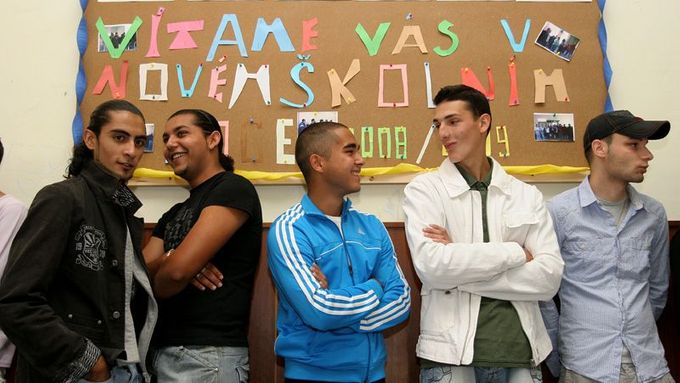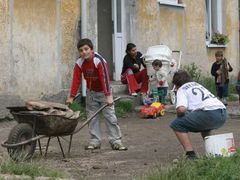Prague - European Roma organizations said at a conference held on 12-13 November in Prague that the Czech government has failed to prevent segregation of Romani children in special primary schools for children with mental disabilities.
The charge, backed by a research conducted earlier this year, comes exactly a year after the European Court of Human Rights ruled that such a practice represents unlawful discrimination under international laws. In the case, the families of 18 Romani children complained that they had been placed in special schools as a result of their ethnic origin.
Special schools still exist
A school law effective from 2005, intended to eliminate discrimination of Roma, abolished special schools and replaced them with so-called practical schools. The reform also introduced preparatory classes and Romani teaching assistants at standard primary schools to facilitate the integration of children from disadvantaged backgrounds.
Despite the reform and the ruling of the Strasbourg court, Romani children remain over-represented in former special schools, now relabelled as practical schools, where they are taught according to substandard curriculum designed for children with mental disabilities.
According to research conducted by the European Roma Rights Centre (ERRC) and the Roma Education Fund (ERF), Romani children represented more than a half of the student population in 14 of the 19 schools visited by the researchers.
"The alarming thing is that school directors, parents and even pupils themselves put an equals sign between 'practical school' and 'school for Roma'," says Tara Bernard, who participated in the research project.
Yet, some Czech education experts warn against the Roma groups' recommendation that practical schools be abolished and Romani children fully integrated in standard primary schools. "Our education system is not ready for that. We would only expel those children from schools. They would just quit," says sociologist Ivan Gabal.
Rushed decisions
The Roma organisations behind the research point out that the pedagogical-psychological counselling centres that decide about the placement of children in practical schools use the same methodology they used before 2005. The researchers have found out that the decision about a Romani child is often made in one session that lasts 15 to 30 minutes.
"The Czech Republic does not have a law that would order a repeated examination of children in practical schools," says Bernard. She adds that a vast majority of these children will never be able to go to continue with secondary or tertiary education.
Representatives of the pedagogical-psychological counselling centres argue that Romani children are being transferred to practical schools at the request of their children.
The ERRC-ERF research confirms this, but its authors point out that Romani parents often do so because they themselves used to be segregated in special schools, and because they do not have enough information about what the placement in a practical school will mean for their children.
The lack of education among the Romani community then translates into a high unemployment rate. According to a survey by the World Bank, the overall quality of education among Roma has been constantly decreasing since 1989.
The Roma groups also criticise a lack of any statistics. The Education Ministry has only recently started collecting data on pupils' nationality, the language they speak at home and the type of school and grade they attend. So far only estimates have been available.

